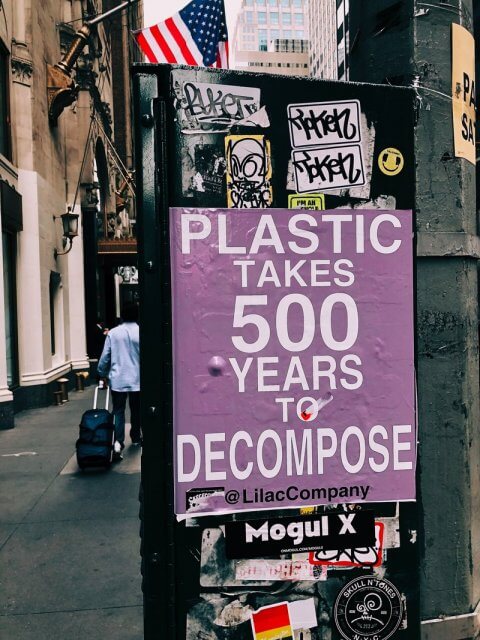David Attenborough’s Blue Planet II series, aired in 2017, galvanised a global movement to rid our oceans of single use plastic.
But six years on – with Blue Planet III set to be aired next week – plastic is sadly still a scourge on our planet.
A typical UK household goes through 66 items of plastic every week and, shockingly, most of this is thrown into landfill instead of being recycled – often even if it goes into your recycling wheelie bin.
From the food we buy to the bottles of shampoo in our bathrooms and the milk in our tea, plastic is part of our everyday lives. But with 14 million tons of plastic ending up in our oceans each year, it has become a major threat to Earth’s ecosystem.
The cost-of-living crisis has given us new priorities, such as meeting basic household bills and mortgages, but there are easy steps you can take to cut out plastic that shouldn’t cost you extra money or time.
To mark Recycle week in the UK, here are our top five:
1. Be plastic-wise when shopping
- Always have reusable bags in your car, and your handbag. This is an easy first step with a big impact. Despite efforts to curb their use, a shocking 629 million plastic carrier bags are used in the UK each year. According to Greenpeace, 57 ‘Bags for Life’ are sold to each household per year – don’t forget to keep replacing the ones you use from your car!
- Avoid products encased in plastic packaging and choose a supermarket with a “plastic-free” area if there is one in your local area (Waitrose and Lidl have made big strides on plastic), or go to a local food market or grocer.
- Cut out frozen meals in plastic containers.
- See what fresh produce is on offer at your local farmer’s market or farm store. Often prices are the same or better than the supermarkets, and the produce stays fresher far longer as it has recently been picked.
- Buy fresh bread from local bakeries in a reusable or paper bread bag.
- Bring your own container when buying deli meat and cheeses. The shop attendant will simply deduct the weight of the container for you.

2. Choose to re-use
- Take a reusable cup to your favourite coffee shop instead of buying a single-use plastic one. Some will even offer a discount for this, including Pret A Manger, Starbucks and Pauls.
- Carry a reusable water bottle (made from stainless steel or glass) with you so you don’t need to buy single-use plastic bottles.
- Many local dairies now offer their milk and other products in glass containers that are delivered to your door, then reused. Remember the milkman?!
- Opt for reusable utensils and plates. Buying plastic cups, plates and cutlery can be tempting if you’re hosting a party, but using washable alternatives will save all that plastic from being thrown away.
- Take your lunch in a reusable container.
- Say no to plastic straws that get thrown away after just one use.
- Try reusable pads, panty liners or menstrual cups. A growing number of companies, like Earthwise Girls, are producing high quality reusable pads and menstrual cups. Cups are by far the best choice, and way more hygienic than all other sanitary products – reusable or not!
- Choose second-hand, plastic-free furniture.
Plastic pollution: what progress has been made?
3. Buy plastic-free household products
- Use bar soap instead of liquid hand washing liquid and cut out all those plastic bottles.
- Use natural cleaning products. Try clove oil, a powerful natural mould killer, for cleaning the bathroom and clean surfaces with water and vinegar.
- Use a dish brush with a wooden handle and compostable bristles
- Buy plastic-free toilet paper. Who Gives a Crap provides ethically-sourced and produced toilet paper that can be delivered to your door. Half of the firm’s profits are used to pay for toilets for those in need.
- Buy plastic-free sunblock or make your own. Friendly Turtle makes fantastic all-natural sunscreen products in plant-based packaging.
- Use eco-friendly dental floss. Try to find dental floss that doesn’t come in plastic packaging. Brands like Peace with the Wild and Boobalou are some great options.
4. Try a small-scale circular economy at home
- Grow your own produce and/or get it delivered in plastic-free packaging from veg box companies like Riverford or Abel and Cole.
- Compost your food waste using a product such as Bokashi Bin. This gets rid of the need for rubbish bags. Once you start composting your food waste, you might find you barely need your normal rubbish bin as most other products can be recycled.
5. Cut your pet’s plastic paw-print
- Pick up waste using old newspaper or compostable bags. This removes the need for plastic poo bags.
- Use glass or stainless steel food/water bowls.
- Choose pet toys and furniture made from natural material.
- Buy your pet food in bulk and use a cat litter made from natural materials.
- Compost your pet poo using a product like a Bokashi Bin ‘poo wormery’.




